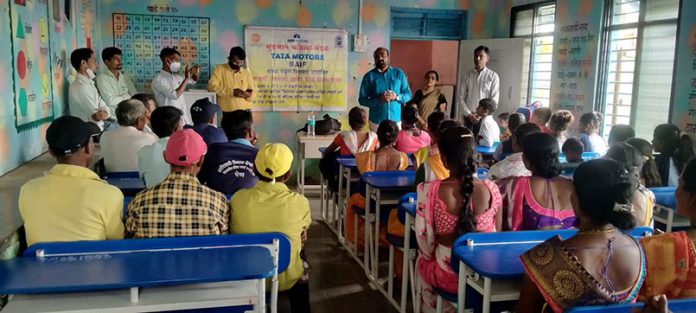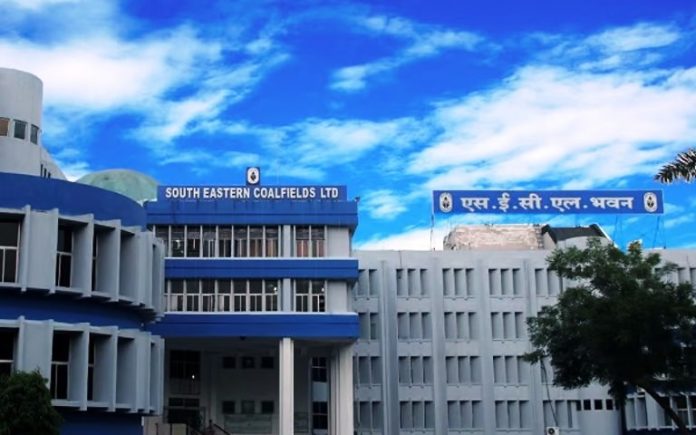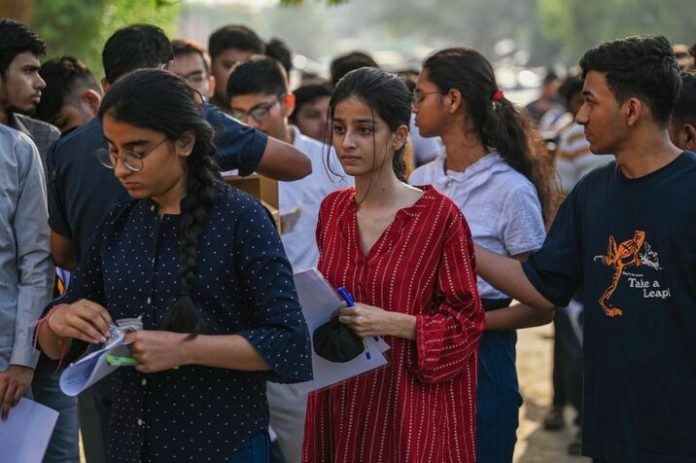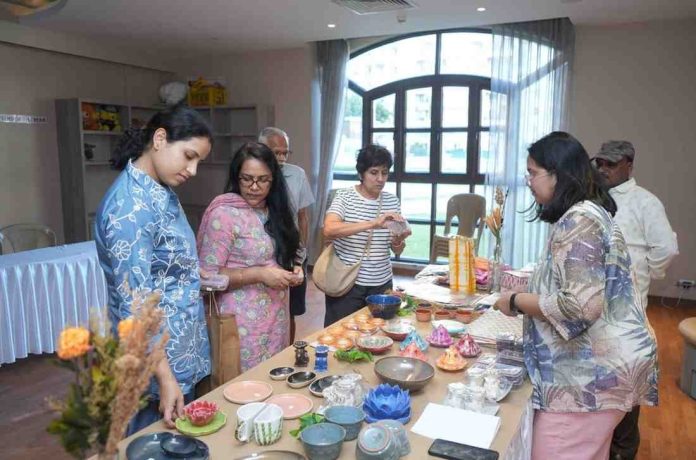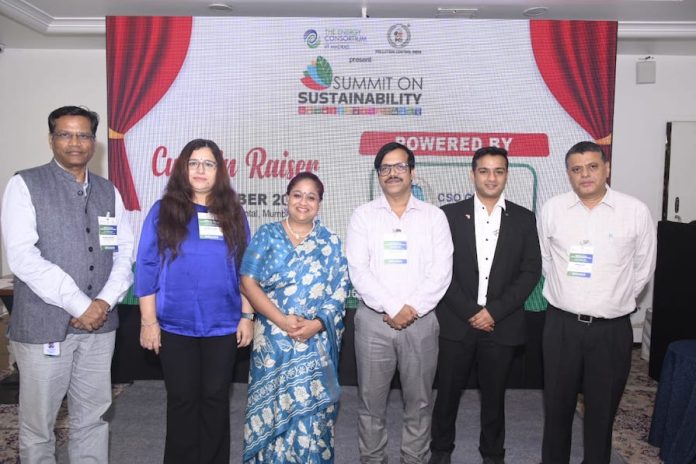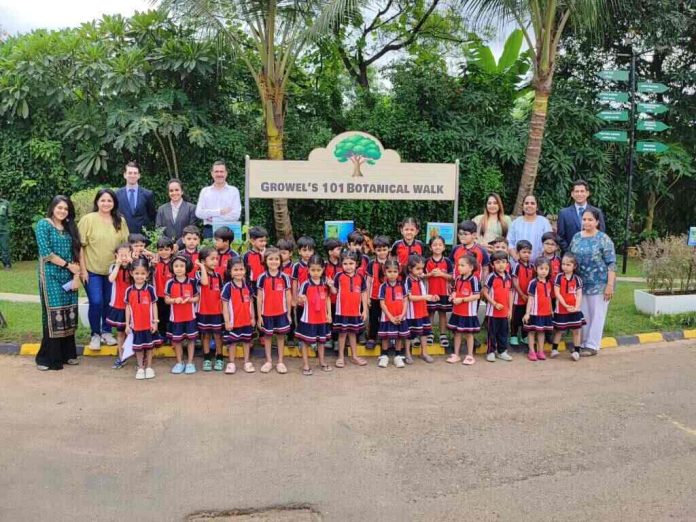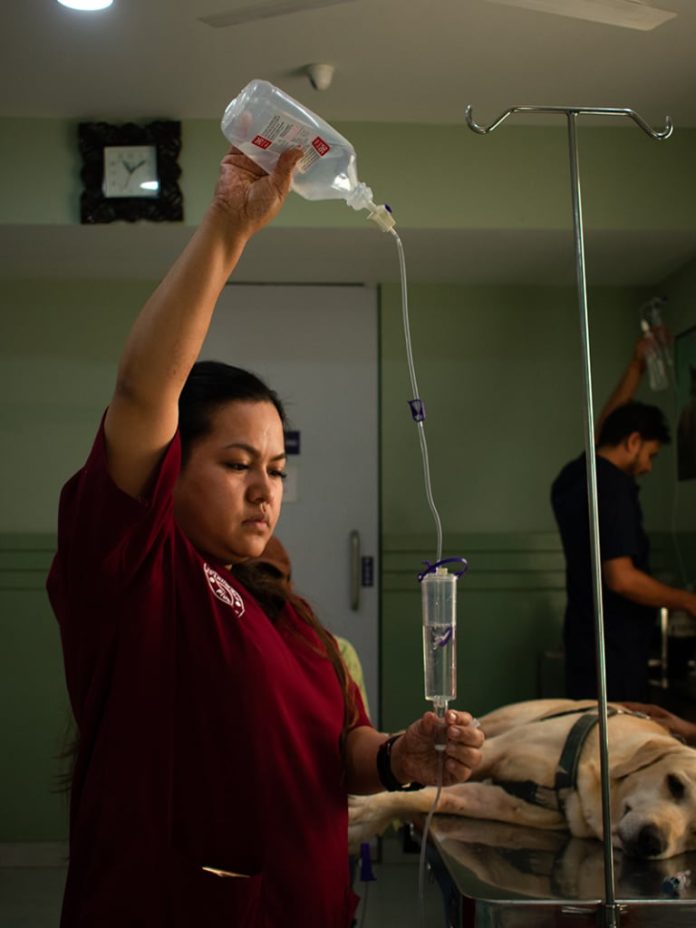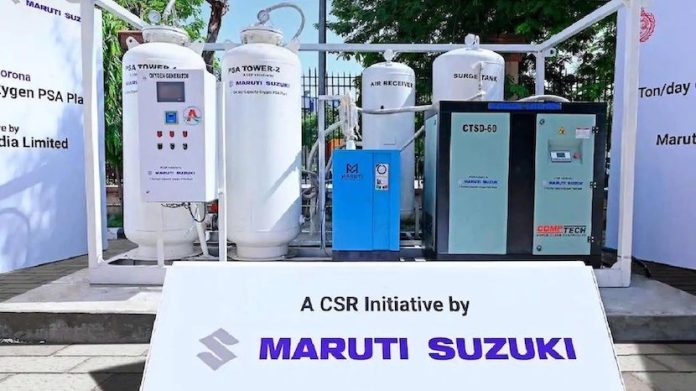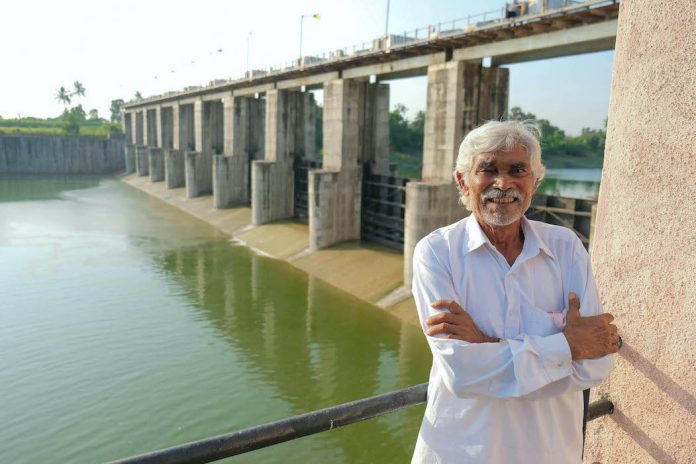Tata Motors Limited is a leading global automobile manufacturer of cars, utility vehicles, pick-ups, trucks and buses. Tata Motors’ focus on engineering and tech-enabled automotive solutions, catering to the future of mobility, has made it India’s market leader in commercial vehicles and one of the top four in the passenger vehicles market. From its brand promise of ‘Connecting Aspirations’ arises the Company’s innovation efforts that aim at developing pioneering technologies that are both sustainable and well suited to the evolving aspirations of markets and customers.
In FY 2023-24, Tata Motors spent a total of Rs. 21.59 crore on its CSR initiatives, empowering the lives of over 10.03 lakh people across the country. Moreover, employees of Tata Motors volunteered for 1.17 lakh hours, improving the reach of the company’s CSR. Tata Motors, in FY 24, through its CSR interventions, could reach one million plus underserved community members across the country.
Tata Motors’ CSR initiatives are strategically aligned with the Common Minimum Programme (CMP), ensuring that their developmental efforts benefit communities across India while also catering to local interests through Location Specific Projects (LSP). When it comes to CSR, they specifically focus on health, education, employability and environmental protection.
Tata Motors’ CSR also ensures a due share for Scheduled Caste, Scheduled Tribes (SC and ST), women, and encourages employees to contribute to social causes through volunteering and disaster response activities.
1. Healthcare
1.1 Arogya
Tata Motors has been actively engaged in corporate social responsibility (CSR) initiatives, with a strong focus on healthcare. Their flagship program in this domain is Arogya, a health initiative designed to combat malnutrition among children aged 0 to 6 years.
Under the Arogya program, Tata Motors strives to make a positive impact on the health and well-being of the community. A significant portion of the initiative involves providing supplementary diets and supplements to address the nutritional needs of young children during their formative years. Beyond just the provision of resources, the program is geared towards fostering behavioural changes within communities, particularly targeting young mothers and parents.
Awareness sessions play a crucial role in the Arogya initiative, aiming to educate and empower communities on essential aspects of healthcare. Additionally, the program extends support through antenatal and postnatal services, recognizing the critical role these stages play in shaping the health of both mothers and infants.
To further enhance the reach and impact of the Arogya program, Tata Motors has implemented curative healthcare services. These services include diagnosis, administration of generic medicines, and consultations, ensuring that communities receive comprehensive and accessible healthcare.
The Arogya initiative has benefited over 5.7 lakh healthcare beneficiaries as claimed by the company in its latest Annual Report. This commitment underscores the company’s dedication to addressing health challenges and making a meaningful difference in the lives of those in need.
2. Education Initiatives
The Indian Education System is one of the largest in the world, with more than 1.5 million schools, 8.5 million teachers and 250 million children from varied socio-economic backgrounds. The pandemic resulted in 250 million students being affected due to school closures.
2.1 Vidyadhanam Programme
Tata Motors’ Vidyadhanam initiative employs a comprehensive strategy to enhance the learning outcomes of secondary and higher secondary government school students.
Vidyadhanam encompasses various targeted programs to uplift the education standards. Specifically, the programme includes special coaching classes for secondary school students and coaching sessions for those preparing for Medical and Engineering entrance examinations at the senior secondary level. In addition to academic support, Vidyadhanam extends need-based scholarships to meritorious students facing financial challenges.
To create a holistic educational experience, Tata Motors conducts sports and co-curricular activities, along with sessions on value-based life skills. The programme also addresses gaps in school infrastructure, contributing to the establishment of a positive and conducive learning environment in government-run public schools.
In the FY 2024, over 1.5 lakh children have been educated through the Vidyadhanam programme.
2.2 ENABLE Initiative
The Engineering and NEET Admission Bridge Accelerated Learning Engagement (ENABLE) initiative of Tata Motors is an e-enabled remote learning programme that grooms and coaches students of Standards XI and XII from 477 Jawhar Navodaya Vidyalayas (JNVs) across the country to appear for JEE and NEET competitive examinations, for Engineering and Medical colleges, respectively.
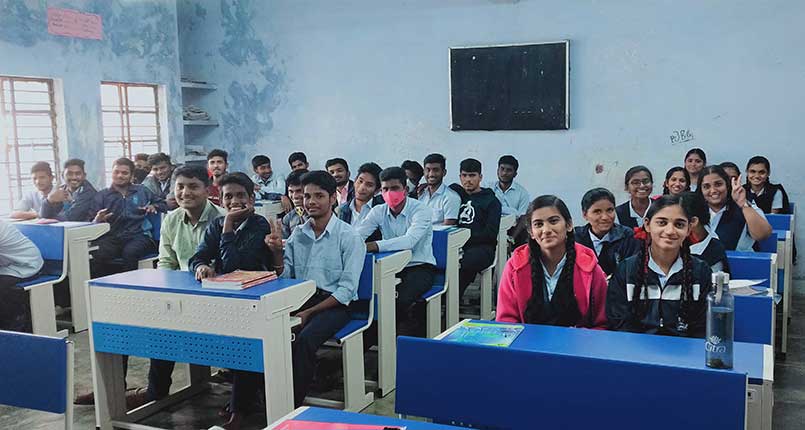
JNVs are co-educational free residential government schools that house talented and meritorious students from Rural India and are among the highest-ranking CBSE schools. Its central governing committee, the Navodaya Samiti (NVS), has successfully nurtured academic aspirations among the students by ensuring 100% of their students clear the CBSE board exams. However, training JNV students for leading professional institutes was a major challenge because private coaching classes for medical entrance tests and IIT JEE is unaffordable for the students. Tata Motors acknowledged this gap and joined hands with NVS to provide JEE and NEET coaching to all JNV students from the science steam across India via the virtual mode
It began with a residential Centre for Excellence in Puducherry in 2014, later expanding to ~80 plus schools in 2019 by offering advanced coaching during the vacations (Summer and Winter) with rigorous doubt-solving undertaken during the rest of the year. This programme went entirely virtual in 2021 post the Pandemic. Remote learning offered by Tata Motors now reaches 477 JNVs in 26 states and eight UTs. It was Tata Motors’ agility in responding to the lockdown and school closure that led to the inception of this remote learning model that addressed the learning gaps and digital divide among JNV students.
The teachers, deployed by knowledge partners Avanti Fellows and Ex Navodayan Foundation, broadcasted the classes to students’ homes with homework and weekly tests during the COVID lockdown and the at-home learning phase. Now with in-school learning commencing, classes are conducted and broadcast live through YouTube by master teachers. The programme reaches out to each individual to ensure attendance and monitor performance. Telegram app and WhatsApp are used extensively for grouping, communicating, doubt-solving, etc. Teachers are constantly available online to respond to the queries of students.
3. Employability Initiatives
India’s employability index improved from 45.97% in 2020-21 to 46.2% in 2021-22. The gender gap in employability is also improving, with the pool of employable women steadily rising 51.44% of women are highly employable, while 45.97% of men are highly employable.
Tata Motors provides employability skill training, especially to youth who dropped out of school in three areas; Auto and technical Trades, Non-Auto Training as well as Agri and allied Training.
3.1 Kaushalya Programme
Tata Motors demonstrates its commitment to skill development through the CSR program, Kaushalya, which specifically targets unemployed youth. The program encompasses a range of skill development activities in auto trades, non-auto trades, agriculture, and allied activities.
Operating under the ‘Learn and Earn’ model, Kaushalya focuses on training students with ITI/12th pass background, tailoring the curriculum to meet the needs of the automotive industry. Upon completing the diploma, these students find employment opportunities with auto dealers, retail networks, vendors, and channel partners.
In the fiscal year 2024, 31,500 trainees benefited from the initiative. Notably, the program emphasizes gender diversity, with 23% of the enrolled students being female.
Beyond youth skill development, Tata Motors extends its CSR outreach to community-based groups of women and farmers. These initiatives provide opportunities for these groups to generate supplemental income through agriculture, contributing to broader community welfare.
3.2 Learn Earn and Progress ( LEAP )
The Learn Earn and Progress Programme (LEAP) imparts automotive skills (service technician) to youth from underprivileged communities. A flagship programme of the Company has grown from being available at two institutes when initiated in 2013-14 to 2021 being available at 60 institutes, with a footprint across 16 states. Preference is given to youth who have dropped out from Standards X and XII, who, if they remain unskilled and unemployed, may be susceptible to unlawful activities.
Deployed via a public-private partnership model, LEAP is offered at member Industrial Training Institutes (ITIs) under Skills for Progress (SKIP), Tata Motors dealers, and Authorised Service Stations (TASS).
Trainees receive theoretical knowledge at the ITIs for three months, followed by nine months of on-the-job training with a stipend provided by Tata Motors and TASS. Once they complete their training, youth are assessed and certified by the Automotive Skill Development Council (ASDC).
3.3 Skilling the Rural Women
Rural women were forced to compete with men for daily wage labour opportunities because of the job losses, rise in unpaid domestic work, limited or no work opportunities for the men of the house and limited mobility Covid-19 pandemic. Families were surviving on scarce resources, and the sudden influx of job seekers within the village after the return of migrants imposed inordinate mental and physical trauma on rural women. The women of the Ahmedabad district near the Sanand plant of Tata Motors were no different.
The adverse economic impact on them was the driver for the Company to bolster an already popular Non-Auto Trade Training programme of the Company, to provide much-needed succour. The Company’s skill development and vocational training courses helped women in the district become employable, benefit from opportunities and attain financial independence.
The Company began actively promoting training under Kaushalya’s Sewing Machine Operator (SMO) programme in the villages under the Bavla & Viramgam blocks of Ahmedabad district. Initially, only a handful of girls and women obtained permission from their families to enrol despite many being willing to join. Their families were apprehensive about them living away from home for the residential training programme. Some even doubted their ability to acquire a new skill. But once the Tata Motors team counselled their parents and explained the future prospects of the women to their families, persuading them to enrol at the training centre, a wondrous journey began for the women.
Any apprehensions that the trainees held of their own capabilities were erased on the first day of training, which focussed on instilling confidence in these rural women and making them believe in their basic abilities. Once all impediments to their progress were removed, the women thrived; their zeal to learn saw them attempt a wide range of garments in addition to acquiring the skill of running a business.
A group of confident 215 women finished the Sewing Machine Operator training successfully, marking the first step towards self-reliance. Of them, 102 were recruited by Arvind Mills at a starting salary of Rs. 9000/- per month. But once again, they faced the challenge of obtaining permission from their families to go out to work. Their struggle to break the shackles of dogma was compounded by the daily struggle to get to work and spend the day away from home. But as the women grew and began earning, these challenges soon ebbed away as family members appreciated the financial benefits of a stable income, and the members of the community acknowledged the benefit of having confident, upwardly mobile, aware women within them.
4. Environment Conservation Initiatives
Vasundhara – Making India greener
The company is working to minimise its impact on the environment through a range of green initiatives like promotion of renewable resources, creation of carbon sinks through large-scale sapling plantation, construction of water conservation structures and raising awareness among communities.
In the FY 24, 11.3 lakh trees have been planted under this initiative while 1.47 lakh people have been sensitised on environmental issues.
Tata Motors has developed a unique, nationwide participatory model to plant over one million trees to benefit 4000 farmers across its locations. Partners in this process are the Government, beneficiary communities, NGO partners and the Company. The aspirational target is to ensure that in the next five to 10 years high, yielding fruit trees begin reaping economic benefits for tribal communities, providing them with food and income security.
Amrutdhara – For drinking water
The Amrutdhara programme focuses on ensuring water security in rural areas and tribal hamlets with an aim to reduce seasonal diseases like scabies and dysentery, along with improved water, health and sanitation practices. The project has also reduced the burden on women, who previously had to travel long distances to fetch water, resulting in increased girls’ enrolment in rural schools.
Tata Motors partnered with Government of Maharashtra to address the needs of the water stressed regions in Palghar and Pune belt.
Planet Regenerate
Tata Motors has adopted the strategy of ‘Planet Regenerate’ to positively transform the impact of its business on the climate, on resource use and on nature and biodiversity. The company aims to be carbon net zero by 2039 through the decarbonisation of our manufacturing and operations, our supply chain and vehicles in use. To provide a pathway towards this long-term aim, the company has published science-based targets in March 2022, for ambitious CO2e reduction by 2030.
5. Rural Development
In rural development, the company deploys the Partnership Convergence Model, whereby we leverage the available resources of an area and drive development through convergence with government schemes. It also utilises government schemes like MNREGS to make an impact at scale across India. The company has taken up Integrated Village Development Programme (IVDP) in the states of Jharkhand and Maharashtra.
In the year 2023-24, 10,03,943 beneficiaries were covered through the Company’s CSR programmes.

